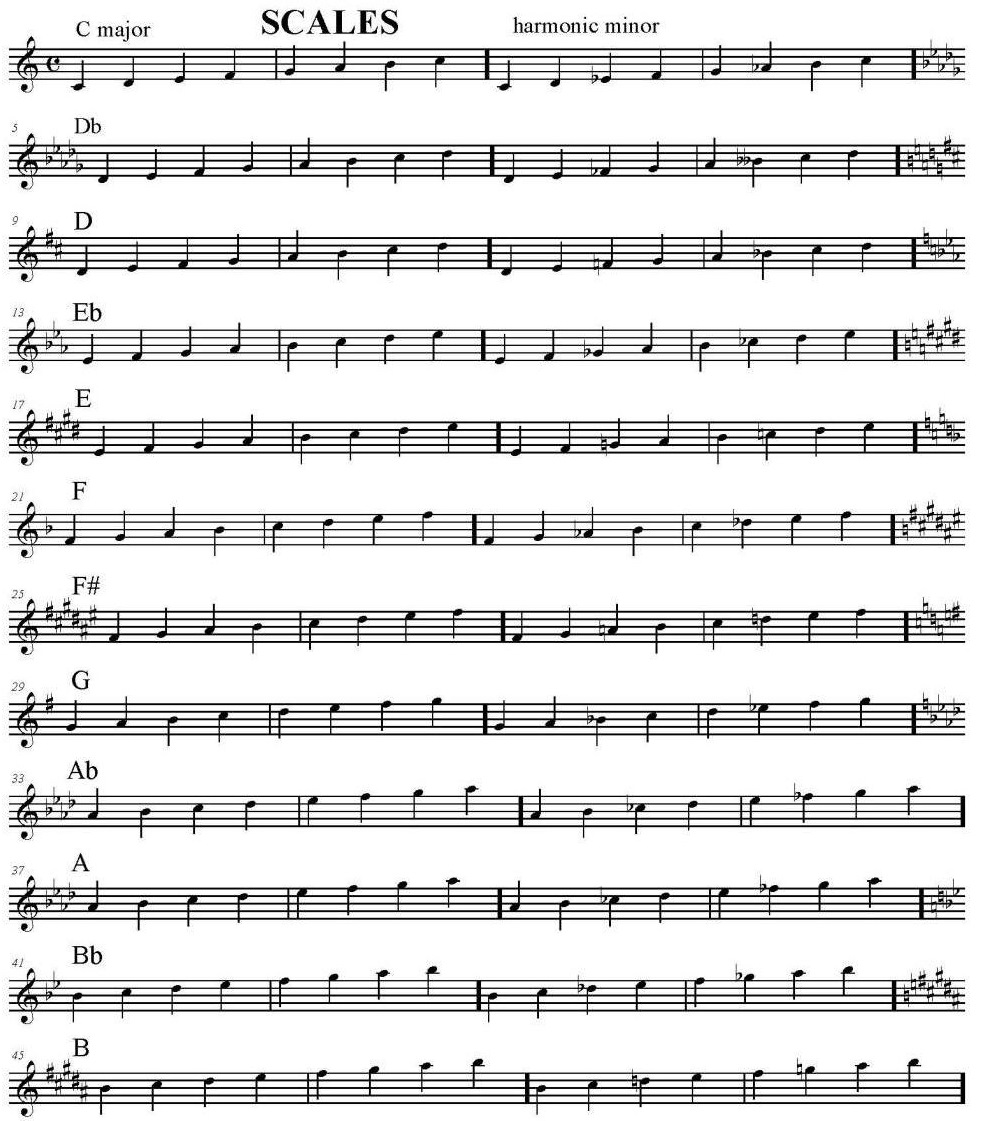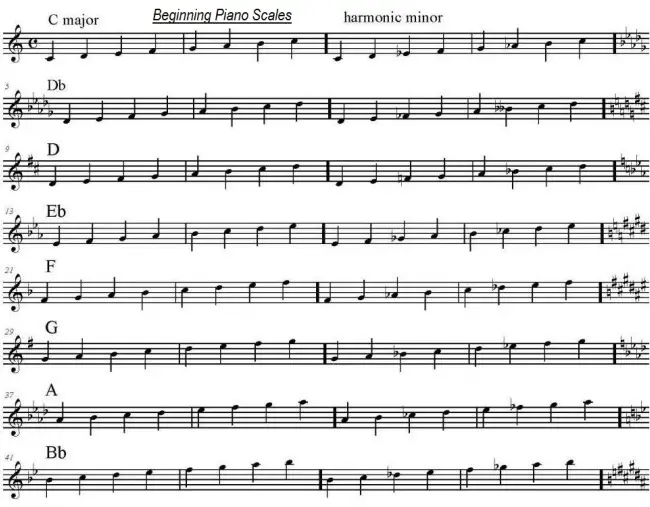
Beginning Piano Scales: Practice scales for Beginners that will help you learn to play songs.
Its important to understand the concept of scales if you want to be able to play songs on your own. All the songs are based on some common scales so the quickly you learn them, the sooner you will be able to play songs. And even though, we all know that scales are important to learn, at the same time it is also very easy to get overwhelmed with the amount of scales to be learnt. Here’s how to learn it the right way.
Advantages of Playing Scales
The main advantage is that it will help you to play songs on your own. All the songs are based on some scale so it becomes easier to figure out the notes of a song once your basic understanding about scales is clear. The other advantage is that it serves as a good warm-up exercise before you begin your practice sessions. If you practice for around an hour, you can spend the initial 3-5 minutes practicing various Piano scales.
12 different keys – Takes time
There are many types of scales and on top of that each type can be played in 12 different keys. So if you aim to master everything, you need to give it some time. But at the same time, if you think and observe carefully how each of these scales is built, you can learn them quickly.
Besides, there is no need to learn all the 12 different keys at one go. Initially you can start with the keys of C, F, G, D, Bb, and Eb and then gradually cover all the keys.
Types of Scales
There are different types of scales but some of the popular ones are listed in the Piano Lessons page. You should begin with the Major, Minor & Chromatic scales and then gradually move onto the other piano scales.
All the songs are based on some common scales so the quickly you learn them, the sooner you will be able to play songs.

Take baby steps
The trick to learn “Beginning Piano Scales” is obviously to take small steps at a time. You should concentrate on learning the scales in a few keys initially. Learn the Major scales in the keys of C, F & G; they have the least number of black keys. You can learn their relative minors also since the notes would be similar, so learn the Minor scales in the key of A, D & E.
Here’s a nice little video that shows you how to play the C Major Scale on Piano. It shows you how to play with one hand and also with both the hands together on the piano.
Useful Links
Understanding the other Key signatures and Scales
Difficult or Boring?
If you heard from somewhere that Piano scales are difficult or boring to play, I would advice you to please ignore it. It is not at all true; they are not at all difficult to learn. And as far as boring is concerned, you don’t have to play them day in and day out. You need to first learn to play them and then probably play them as warm-ups before you start your practice session.
It looks daunting because not only there are various types of scales, almost each of those scales can be played in 12 different keys. So do not try to gobble everything at one go; at the same time you should not shun them also. So how do you learn them?
Learn in all the Keys
Once you start getting comfortable with scales, learn the Major and Minor scales in all the 12 keys. Even within Minor scales, you can learn the different flavors, i.e. Natural, Melodic & Harmonic. You will take some time to get used to the fingering on Harmonic Minor scale but it has a distinct sound so do not skip them.

Move onto the other Scales
Now, you can gradually learn other types of scales as well. After learning the Major & Minor scales, you should not have trouble learning other scales. Chromatic scale would be good; learn it! You can even try out the Blues scale if you are comfortable with it. It forms the base for many styles of music.
More free Piano Lessons
Back to Home page from Beginning Piano Scales
KeytarHQ editorial team includes musicians who write and review products for pianists, keyboardists, guitarists & other musicians. KeytarHQ is the best online resource for information on keyboards, pianos, synths, keytars, guitars and music gear for musicians of all abilities, ages and interests.



Leave a Reply